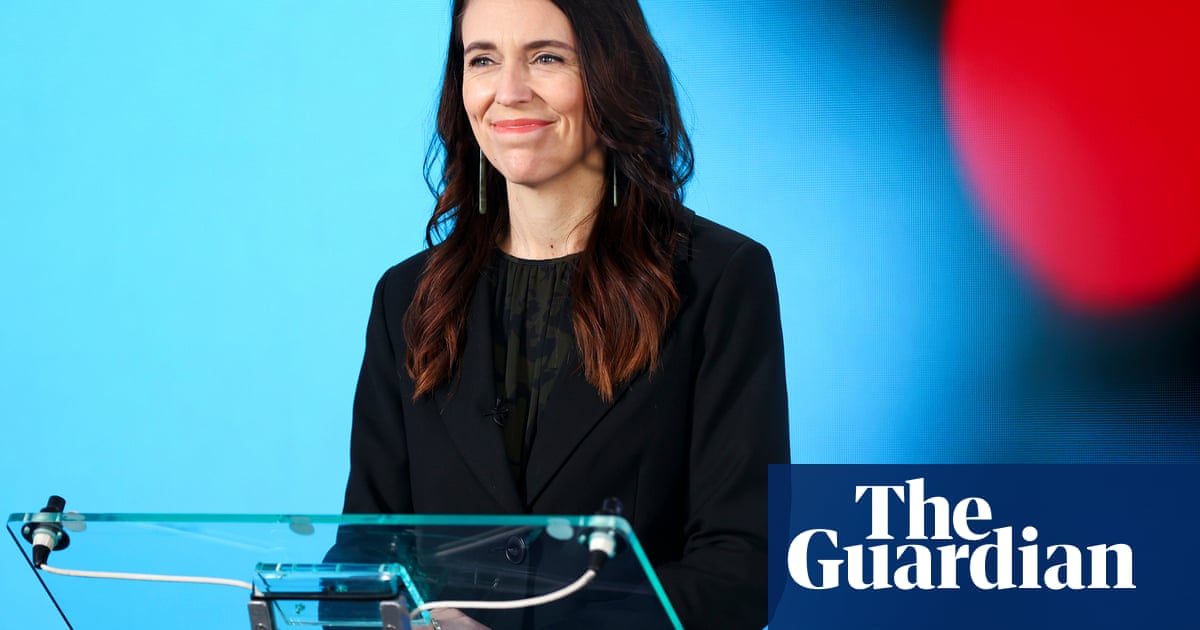Jacinda Ardern was the future, once. New Zealand’s prime minister captured the world’s imagination with her empathetic leadership, her desire to prioritise the nation’s happiness rather than just its GDP, and her bold but deeply human approach to the early stages of the pandemic (though her “zero Covid” strategy of sealing borders to keep death rates low came back to bite her). She governed differently, resigned differently – famously saying in 2023 that she just didn’t have “enough in the tank” to fight another election – and has now written a strikingly different kind of political memoir. It opens with her sitting on the toilet clutching a pregnancy test at the height of negotiations over forming a coalition government, wondering how to tell the nation that their probable new prime minister will need maternity leave.
Ardern is a disarmingly likable, warm and funny narrator, as gloriously informal on the page as she seems in person. A policeman’s daughter, raised within the Mormon church in a rural community down on its luck, she paints a vivid picture of herself as conscientious, anxious, and never really sure she was good enough for the job. In her telling at least, she became an MP almost by accident and wound up leading her party in her 30s thanks mostly to a “grinding sense of responsibility”. (Since it’s frankly impossible to believe that anyone could float this gently to the top of British politics, presumably New Zealand’s parliament is less piranha infested).
Her book feels constructed for an international audience, eschewing domestic political detail for events that resonated globally – like the 2019 terror attack on a Christchurch mosque, after which she led the nation’s mourning with great sensitivity and rushed through gun control laws in a matter of weeks – and for the more universally relatable dramas of her private life.
As a young politician, she’d bitten her tongue through years of sniping about whether she was only there for window dressing, plus endless public speculation about whether or not she was pregnant. When a broadcaster suggested, within hours of her becoming leader, that she owed it to the country to reveal whether or not she planned to have children, “all of the times when I had said nothing … suddenly came crashing through to the surface”. On behalf of women everywhere facing intrusive questions from their bosses, Ardern issued apublic rebukethat was already going viral by the time she left the studio.
The irony, of course, is that for much of the time she was batting off such questions, she and Clarke Gayford, her then partner, now husband, were privately on the emotional rollercoaster that is fertility treatment, culminating in that surprise eve-of-election conception. What happened next suggests Ardern must be steelier than she’s letting on.
The new prime minister soldiered through her first crucial weeks in power keeping the pregnancy hidden, so queasy with morning sickness that she was terrified of vomiting on live TV, lying to her protection officers to cover up visits to her obstetrician. She scheduled a press conference 72 hours after giving birth on the assumption that it would be fine because “Kate Middleton did it” (unsurprisingly, it was not fine). And she was back at work after six weeks, worrying both about being seen as not coping and about being seen as copying too effortlessly, lest she be turned into a stick to beat other working mothers with. As she frequently acknowledges, it took a village – Clarke as stay-at-home dad, her mother as backup, aides who babysat – and even then it wasn’t easy. At one point during the pandemic, she sits down to play with her daughter and all she can see are Covid graphs: “I wasn’t there. Not all of me. And not even most of me.” It’s not hard to understand how she eventually burnt out.
But while all this makes for an emotionally rich and candid read, the downside of skipping the political detail is that it’s hard to get a sense of how exactly her astonishing early popularity ebbed away. By the end, with New Zealand experiencing the same painful post-pandemic inflation as the rest of the world and anti-vaxxers camped outside parliament, the mood had turned ugly.
Ardern seems largely untroubled by policy regrets, standing by her zero-Covid strategy – which worked at first, (albeit at great cost to New Zealanders stranded abroad when the borders closed) but was overwhelmed by the more infectious variants. She’s also notably keener to dwell on what her tenure says about kindness and empathy being powerful mechanisms for changing lives than she is to engage with the critique that she failed to deliver on some of her more tangible promises around alleviating poverty.
Nonetheless, I closed the book feeling a pang of nostalgia for a time when scrapping tax cuts and spending the money on a more generous safety net, or clasping immigrants to a nation’s heart, (as she did after Christchurch) still seemed completely plausible things for a prime minster to advocate. A different kind of power, for what now feels like a sadly different world.
A Different Kind of Power by Jacinda Ardern is published by Macmillan (£25). To support the Guardian order your copy atguardianbookshop.com. Delivery charges may apply.
